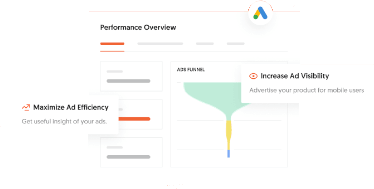Be it a massive industry or one that is comparatively small, a customer experience decides the fate of today's highly competitive business setup. For SMEs, adapting CRM in cloud computing can be revolutionary. It improves the efficiency and productivity of running a business on the backburner of massive infrastructure investments that are not otherwise feasible.
With that out of the way, let us dive into what are the benefits of implementing cloud-based CRM in a small-sized business with actual examples and steps.
What is a Cloud-Based CRM?
To put it simply and short- CRM is a tool to help you better manage your customer data and to understand trends.
Now, to keep it technical and a bit more descriptive- a cloud-based CRM is a type of software system that is hosted on distant servers. It will then provide your business enterprise with the ability to handle the customer's information and communications from an online space. Unlike traditional on-premise installed CRMs, Cloud-based CRMs can be accessed from any device that has an internet connection.
Many small businesses want to deal with a CRM development company so that they can get a cloud CRM solution according to their requirement.
Why Should Small Businesses Adopt CRM in Cloud Computing?
Small businesses might face problems concerning budget, resources, and high expectations from customers. Therefore, cloud CRM helps overcome that by offering very cost-effective as well as adaptable and scalable solutions in the marketplace. Important benefits are these:
1. Cost-Efficiency
With a cloud CRM, one key benefit is lowering upfront costs by a great deal. The benefits of adopting CRM in cloud computing are-
- No need for expensive hardware, or servers Subscription-based Models (SaaS) make cloud CRM affordable for smaller businesses.
- Automatic updates reduce the need for ongoing IT support.
Real-World Scenario : Imagine a local marketing agency struggling to keep track of client interactions. By adopting a cloud CRM, they reduced operational costs by 40% and improved client retention by 25%.
Tip: Begin with a free or low-cost cloud CRM and scale up as your business grows.
2. Scalability and Flexibility
Cloud-based CRMs grow with your needs. If you are a small business of ten clients or a large organization with thousands of clients, a cloud CRM scales with the need. The advantages can be as follows:
- As needed by your business, there is an in-flux allocation of resources.
- Increase during peak seasons without experiencing any downtime.
- Only pay for what you use.
Real-World Scenario: A small e-commerce company, starting from 100 customers, scaled its cloud CRM with the growth of customers to 10,000 in just two years.
Tip: Select a CRM that is flexible in terms of pricing and customizations.
3. Enhanced Collaboration and Mobility
Cloud CRMs allow employees to access customer information at any time, from anywhere, making remote work more effective. Benefits can look like:
- Teams can collaborate in real time.
- Accessible through mobile devices, tablets, or desktops.
- It reduces reliance on physical office infrastructure.
Real-life Example: A field sales team would be using a cloud CRM to update customer information on the move, thus ensuring that at all times the office team will have real-time data.
Tip: Invest in training your team to make much use of mobile CRM functionalities
4. Better Customer Experience
A cloud CRM centralizes customer data, making it easy to deliver personalized experiences and improve satisfaction. Some of the major benefits are:
- A comprehensive view of all interactions.
- Quick and personalized answers to questions.
- Anticipate customer needs based on data.
Real-life Example: A small coffee shop implemented a cloud-based loyalty CRM that tracked the preferences of its customers and sent targeted offers, leading to a 30% increase in customer visits.
Tip: Use CRM data to segment customers and create targeted marketing campaigns.
5. Data Security and Compliance
Despite common fears, cloud CRMs are generally more secure than on-premise systems. Advantages can be:
- Data encryption and frequent backups.
- Cybersecurity protection.
- Industry regulations compliance.
Real-World Scenario: A small healthcare provider implemented a cloud CRM to manage patient data securely, ensuring compliance with HIPAA regulations.
Tip: Choose a CRM provider that prioritizes data security and compliance.
6. Integration with Third-Party Tools
Cloud-based CRMs integrate with other business tools, streamlining operations. The benefits will look like:
- Integrate with email marketing platforms, accounting software, and e-commerce sites.
- Automate tasks like sending follow-up emails or generating invoices.
Real-World Scenario: A small accounting firm integrated its cloud CRM with QuickBooks, reducing manual data entry by 50%.
Tip: Identify the tools your business already uses and ensure the CRM integrates seamlessly with them.
7. Automatic Updates and Maintenance
One of the hassles of traditional CRMs is regular maintenance. With cloud CRMs, this becomes a non-issue. Some of the key benefits are:
- Automatic software updates.
- No downtime for maintenance.
- Always up-to-date with the latest features.
Real-World Scenario: A marketing agency used a cloud CRM that rolled out new features quarterly, keeping them ahead of their competition.
Tip: Choose a CRM provider that frequently updates its platform.
8. Disaster Recovery and Business Continuity
Cloud CRMs ensure your business can continue operating even during unexpected disruptions. The benefits can be:
- Regular data backups.
- Quick recovery in case of data loss.
- Access data from anywhere to ensure continuity.
Real-World Scenario: A local flood made a retail store inaccessible, yet it accessed CRM data from elsewhere and continued to serve its customers uninterrupted.
Tip: Have a disaster recovery plan ready to take full advantage of cloud CRM in emergencies.
How to Choose the Right Cloud CRM for Your Business?
- When choosing a cloud-based CRM, consider the following:
- Scalability: Will the CRM grow with your business?
- Customization: Does it allow for tailoring to your industry needs?
- Integration: Is it integrated into your existing toolset?
- Security: Does the CRM vendor align with current industrial standards?
Why Outsource Your Cloud CRM Development Needs?
Some businesses specialize in outsourcing their CRM services to small businesses. These companies develop CRM applications for small businesses, deliver cloud-based customized CRM solutions for clients, and offer cutting-edge software solutions, thereby aiding businesses in optimizing their customer interaction processes and streamlining operations.
Here’s a concise reason as to why you might wanna outsource your CRM needs-
- Tailored Solutions: They develop CRMs that cater specifically to your business needs.
- Scalable Systems: Whether you’re a startup or a growing enterprise, their CRM solutions can scale with your business.
- Data Security: these companies know how to prioritize data protection, ensuring your customer information is secure.
- End-to-End Support: From development to maintenance, these companies provide comprehensive support.
Frequently Asked Questions
Q1. How does CRM help small businesses?
A1. Small businesses might face problems concerning budget, resources, and high expectations from customers. Therefore, cloud CRM helps overcome that by offering very cost-effective as well as adaptable and scalable solutions in the marketplace.
Q2. What are the 5 benefits of CRM?
A2. Important benefits are these: Cost-efficiency, Scalability and Flexibility, Enhanced collaboration and mobility, better customer experience, and data security and compliance.
Q3. What are the key benefits of implementing a cloud-based CRM system?
A3. Cloud-based CRMs provide numerous advantages, including ease of installation, 24/7 access to information, low cost and security, flexibility, and a variety of integration choices.
Conclusion
It's a smart move for small businesses to choose cloud-based CRM as it will improve customer relationships, collaboration, and cost efficiency. By partnering with an experienced CRM development company, businesses can unlock the full potential of cloud computing and achieve long-term success.








